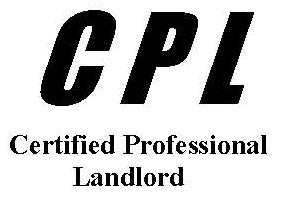Short sales and double closings - a controversial subject to sale the least. Many Realtors have never even heard of this type of transaction while many real estate investors have done dozens of these transactions successfully. There are even some very highly respected real estate "gurus" out there teaching how to do these. Just do a quick Google search and you will find several people selling courses and trainings on how to make giant profits by doing these type of transactions.

Basically the short sale double closing concept comes in 2 forms. Both transactions involve a homeowner being upside down with negative equity in their home and the homeowner no longer being able to afford the payments. During the many months that it takes to negotiate a short sale with the owner's lender, the investor finds a buyer willing to pay more for the house than the investor is paying. Then the investor collects the spread at closing.
(1) The first form of this transaction involves a double closing (a/k/a simultaneous closing a/k/a back to back closing). Homeowner "A" owes $200,000 on their house. Investor "B" signs a contract to purchase the house for $130,000. Prior to the short sale being approved and the deal closed, the Investor "B" finds a Buyer "C" who is willing to buy the home for $150,000 and signs a purchase & sale contract with "C". At closing, "A" sells to "B" for $130K and then a short time later (typically the same day), "B" sells to "C" for $150K. "C" ends up owning the home and "B" walks away with the spread of $20K minus some costs.
(2) The second form of this transaction involves an option agreement. Same scenario and numbers as above except instead of a contract to purchase the house, Investor "B" signs an option to purchase (instead of a purchase & sale contract) for $130K. Then Investor "B" finds a Buyer "C" willing to pay the $150K. "B" either agrees to assign his option agreement to "C" or agrees to release his option for a fee. At closing, "A" sells directly to "C" for $130K but a fee is paid to "B" for the option assignment / option release. Again "C" gets the home and "B" gets the spread.
Some Investors "B" actually go so far as to get a deed from the Homeowner "A" and record it. Often titling the property into a land trust with a name similar to the previous homeowner but with the Investor "B" as the trustee controlling the property. An example ... owner is "John Brown" who deeds the property into "Brown Family Trust dated x-x-2009, Short Sale Investor LLC as trustee."
Now to many Realtors and most laypeople, this is extremely confusing. You may even want to re-read the examples above. But for so many investors, they know this stuff backwards and forwards. Like I said, check out all the courses and boot camps available via the internet.
The Good -
There is nothing inherently wrong with making a profit, even a very large one on a real estate transaction. This happens all the time. A homeowner has to sell cheap because of a distressed situation - foreclosure, divorce, re-location, hurricane or fire or termite damage, probate, etc. An investor buys a great deal because they are willing to buy the house in as-is condition without a financing contingency and close in a matter of days or at most a few weeks. And if the investor can find a buyer prior to closing who is willing to pay a little more, then good for them. Until recently most of these deals did not involve a short sale, so the time from contract to actual closing is often under 30 days. However it seems like probably 1/3 of the deals out there anymore are short sales, so they need to be dealt with.
In fact on the second short sale deal I ever completed (back in 2001 before short sales were a household topic), I did this exact same scenario. I wasn't quite as creative though. I simply assigned my contract for an extra $5,000 and my assignment fee was right on the HUD-1 statement for everyone to see. Seller deeded the property to Buyer and I got my $5K for negotiating the short sale and getting the deal completed.
In another non-short sale deal that I did last year, I bought a house for just $25,000, closed on it using a line of credit, and 3 days later re-sold it to another investor for $40,000. A nice profit for only 3 days holding time. I did have to double close on this property, so the original owner was unaware of my end buyer and so my end buyer was not aware of the full amount of profit that I made. Didn't matter, there is nothing inherently wrong, illegal, or unethical about buying low and selling high.
In fact, there is an absolute need out there for these type of transactions. Sure some investors doing this can be portrayed as vultures (and I will elaborate on that in Parts 2 and 3). However, I can't tell you how many times I have seen Realtors listing short sale properties who were completely clueless on what they were doing. If you don't have an offer on the property, then the bank typically will not even talk numbers to you. And how many of us have seen a retail buyer offer to purchase a property and then 3 months later, they have disappeared and the seller has to go and find yet another buyer (who will probably offer even less).
With an investor deal, THE INVESTOR IS THE BUYER so the negotiations get started almost immediately. And obviously the investor is in the deal to make a profit, so you cannot begrudge them to expect getting a paycheck out of the transaction. After all this is still America.
I will say though that ever since short sales became commonplace in the market starting about 2007, that I have removed myself from the double closing / option closing aspect of these transactions for various reasons that I will elaborate on in Part 2 and especially Part 3 of this article.
Next time I will discuss the Bad (Part 2) and the Ugly (Part 3) of these short sale double closing transactions. Stuff to look out for and stuff to stay far away from. Until then ... make some offers.
---------------------------------------------------------------------------------------------------------------------
(Copyright © 2009. Sand Dollar Realty Group, Inc. All rights reserved.)
Rob Arnold - Your full service and investor friendly Realtor ® in Orlando and Central Florida.
407-389-7318 / 1-877-389-7318 www.SDRhouses.com www.WeBuyHousesFlorida.com
We sell foreclosure, short sale, and bank owned REO house home throughout Central Florida, metro Orlando, and the Space Coast. We sell and list Central Florida real estate and Orlando real estate. Free list of foreclosure and short sale houses available. Our firm also provides flat fee MLS listings, For Sale By Owner, and menu-based services in most parts of Florida including Orlando, Altamonte Springs, Apopka, Kissimmee, Sanford, Lake Mary, and Deltona.







Comments(20)